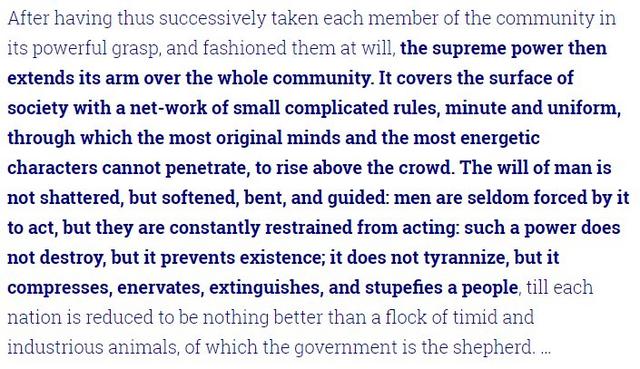hendrix
Well-known member
Didn't you just answer your own question?Sure it is. I could mooch off my parents, my sister, my in-laws. I could live in a hut and survive off what I could hunt/forage. I could throw myself on the mercy of the kindness of strangers.
But I'm not the one proposing a stateless, worker controlled system. I'm just trying to figure out how such a system would work.
How are you obtaining food and living quarters (of a reasonable standard) without a) providing value in another area that is quantified using money or b) taking it?
The point is that a person provides work in order to produce resources - and that person produces the resource as they see fit through the work they do. But in a society in which market wages dictate how much resource a worker acquires, and profit is incurred by minimising wages and maximising produce - the worker simply cannot dictate how much they need to work in order to provide the resources they want i.e. there's not true freedom. You don't really get to say no. I'm not saying that's a bad thing. But it is a feature of pretty much any system in which property and resource can be owned individually.
Freedom is not something I believe in anyway it's just a nice principle to recognise.


 ). Most people don't embrace communism but argue that the involuntary nature of the state is a necessary evil to defend people from bad actors or fight inequality or grow the economy or protect jobs or prevent degeneracy or whatever else they want to outsource their violence/theft/threats to the state to achieve. A small number embrace communism, and even smaller number (including myself and GIMH) think the involuntary nature of the state makes it fundamentally immoral as an institution.
). Most people don't embrace communism but argue that the involuntary nature of the state is a necessary evil to defend people from bad actors or fight inequality or grow the economy or protect jobs or prevent degeneracy or whatever else they want to outsource their violence/theft/threats to the state to achieve. A small number embrace communism, and even smaller number (including myself and GIMH) think the involuntary nature of the state makes it fundamentally immoral as an institution.